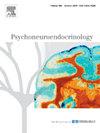性别差异与术后认知功能障碍:揭示生物学机制
IF 3.4
2区 医学
Q2 ENDOCRINOLOGY & METABOLISM
引用次数: 0
摘要
术后认知功能障碍(POCD)是手术后常见的神经系统并发症,特别是在老年患者中,对康复、生活质量和社会负担有重大影响。随着老年人口接受更多的外科手术,了解与POCD相关的多因素风险变得越来越重要。虽然年龄、受教育程度和先前存在的认知状况等因素是确定的风险因素,但生理性别在POCD中的作用仍未得到充分探讨。新出现的证据强调了脑形态、激素调节和神经炎症反应的明显性别差异,这可能会改变POCD的易感性。例如,雌激素已被证明在压力下发挥神经保护作用,女性可能更容易受到炎症驱动的脑萎缩的影响。此外,APOE4等位基因的男性携带者表现出较差的术后认知结果,而女性携带者则相对受到保护。本文旨在探讨生物性别与神经炎症过程在POCD发展中的相互作用。通过深入研究这些机制,本文旨在揭示POCD发病率和进展的性别差异,为其发病机制提供新的见解。了解这些差异对于制定有针对性的预防和治疗策略至关重要,从而最终改善男性和女性患者的治疗结果,同时减轻医疗保健系统的压力。本文章由计算机程序翻译,如有差异,请以英文原文为准。
Sex differences and postoperative cognitive dysfunction: Unveiling biological mechanisms
Postoperative cognitive dysfunction (POCD) is a common neurological complication following surgery, particularly in older patients, with significant impacts on recovery, quality of life, and societal burden. As the aging population undergoes more surgical procedures, understanding the multifactorial risks associated with POCD is increasingly critical. While factors such as age, education level, and preexisting cognitive conditions are established risks, the role of biological sex in POCD remains underexplored. Emerging evidence highlights distinct sex differences in brain morphology, hormonal regulation, and neuroinflammatory responses, which may alter susceptibility to POCD. For instance, estrogen has been shown to exert neuroprotective effects under stress, and women may present greater vulnerability to inflammation-driven brain atrophy. Additionally, male carriers of the APOE4 allele exhibit worse postoperative cognitive outcomes, while female carriers appear relatively protected. This review aims to explore the interaction between biological sex and neuroinflammatory processes in the development of POCD. By delving into these mechanisms, the review seeks to shed light on sex-based disparities in POCD incidence and progression, offering new insights into its pathogenesis. Understanding these differences is vital for developing targeted prevention and treatment strategies, ultimately improving outcomes for both male and female patients while alleviating the strain on healthcare systems.
求助全文
通过发布文献求助,成功后即可免费获取论文全文。
去求助
来源期刊

Psychoneuroendocrinology
医学-精神病学
CiteScore
7.40
自引率
8.10%
发文量
268
审稿时长
66 days
期刊介绍:
Psychoneuroendocrinology publishes papers dealing with the interrelated disciplines of psychology, neurobiology, endocrinology, immunology, neurology, and psychiatry, with an emphasis on multidisciplinary studies aiming at integrating these disciplines in terms of either basic research or clinical implications. One of the main goals is to understand how a variety of psychobiological factors interact in the expression of the stress response as it relates to the development and/or maintenance of neuropsychiatric illnesses.
 求助内容:
求助内容: 应助结果提醒方式:
应助结果提醒方式:


